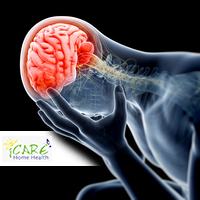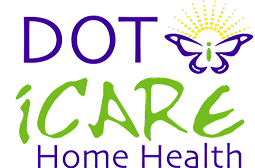June Is Brain Injury Awareness Month

The brain is a fascinating organ! At one point, you were probably labeled as a ‘left’ brain or ‘right’ brain thinker – referring to the two hemispheres of the brain. When learning about the different lobes of the brain – remember they cover both hemispheres, and are responsible for specific functions depending on their location. Many of those functions hold the keys to who you are as a person.
Brain aware:
- Your brain is a jelly-like organ made up of billions of cells called neurons.
- Your brain has 100 billion neurons and 100,000 miles of blood vessels.
- Neurons do not grow back. Once a neuron dies, it is gone forever.
- The death of one neuron leads to the death of surrounding neurons, causing a cascade effect, which can result in new symptoms appearing months after an acquired brain injury occurs.
- While neurons do not regenerate – you can build new neural pathways in your brain
- Two-thirds of the brain’s surface is hidden in grooves. The depressions in the surface of the brain are called sulci, which surround the groves, called the gyri.
What is a brain injury?
An acquired brain injury (ABI) is an injury, which occurs after you are born. It is not a cognitive condition (such as Alzheimer’s) or a genetic condition, (such as Tay-Sachs disease). A stroke, a brain tumour or an infection can cause an ABI. It can also result from external factors, such as a near drowning, substance abuse or a poisoning.
A traumatic brain injury (TBI) can be caused by events such as a car accident, a fall, a gunshot wound or a sports injury. They can be classified as mild, moderate or severe. Some TBI symptoms may get better over time, and others may not. Some survivors who’ve had ‘mild’ TBIs experience very severe, life-altering symptoms.
A brain injury causes a diminished or altered state of consciousness that can result in impaired functioning in some or all areas of life – cognitive, physical, emotional and/or behavioral. It is very common for families to seek out assisted services such as Attendant care to support the recovery process. If the injured individual requires more support, seeking options for long term care may be the better way to go to support rehabilitation and restore their quality of life.
According to the Canadian Nurse and Brain Injury Canada websites:
- There are 46 hospital admissions for traumatic head injuries each day in Canada alone (2003-2004 statistic).
- Only 29% of those admitted to a hospital with a traumatic head injury in Canada (2003-2004) were over 60 years old.
- In Canada, brain injury is the number one killer and disabler of people under the age of 44.
- The likelihood of a brain injury is two times greater within the male population.
- There are currently no drugs or techniques that can cure a brain injury.
The consequences of a brain injury are not only devastating to the individual but also to their family. Family and friends may notice that the person who has suffered a brain injury may experience any of the following symptoms: difficulty with balance, blurred vision, trouble speaking and swallowing, personality changes, difficulty with reason, focus or logic and even mood swings and inappropriate behavior.
Doctors and other medical professionals involved in the treatment of the patient will have to rely on family and friends to tell them how the patient would have behaved or reacted to things before the injury took place. It can be very hard for loved ones to see someone they care about changed so much by a brain injury.
Seeking help to assist with recovery from a brain injury is a long road that involves everyone working together towards rehabilitation. While the focus for health and well-being is on the patient, care givers are also reminded that they need to look after their own health too.
iCare Home Health has team members who are certified in Brain Injury Care. Our Attendant Care services may include a combination of Personal Support at Home, Nurse at Home services and in some cases, we also work as part of a team assigned by the treating physician including Occupational Therapists, Physiotherapists, Life Planners and more.
To find out how we can help you, a loved one or someone you may know who suffered a brain injury in Oakville, Mississauga, Burlington or Toronto, contact iCare Home Health.

